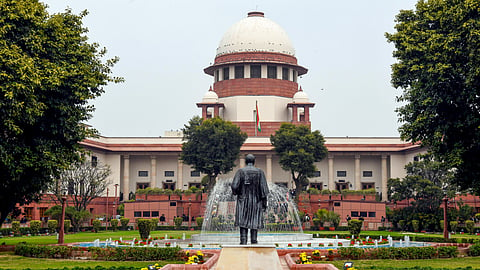

NEW DELHI: The Supreme Court has formed a three-member committee, headed by the Sariska Collector, to propose solutions to the issues of crowded gatherings and vehicular traffic within the Ranthambhore Tiger Reserve in Rajasthan.
The court passed the order in a suo motu case pertaining to TN Godavarman Thirumulpad versus the Centre and an application filed by petitioner Sanjay Kumar.
A three-judge bench of Chief Justice B R Gavai, Augustine George Masih, and A S Chandurkar, on May 30, observed, “The committee shall give a hearing also to the representative of the Trust and arrive at a solution in a phased manner so that the interest of the Tiger Reserve, as well as the concerns of the devotees, are given due consideration.” It also directed the State of Rajasthan to immediately ban any illegal mining activities occurring within the core area of the reserve.
The bench was hearing an application seeking a slew of directions to improve the Critical Tiger Habitat (CTH)/core zone of the tiger reserve.
“In order to protect the Ranthambore Tiger Reserve, we also deem it appropriate to direct the State of Rajasthan to take steps to ban mining in the core area of the Tiger Reserve,” the court order read.
The issues highlighted by the applicant were crowded gatherings at Trinetra, illegal mining at CTH, unlawful construction and commercial activities at CTH, delayed notification of eco-sensitive zones within the Tiger Reserve, and conservation of historic structures within the reserve.
Pointing out that various historic structures are situated within the Ranthambore Tiger Reserve, including Jogi Mahal, Battees Khamba, Bada Mahal, Ranthambhore Fort, and the Jain Temple, the petitioner submitted that these historic structures are not being adequately maintained.
The petitioner sought appropriate directions from the State of Rajasthan and the Union of India to take effective steps to regulate and restrict public access and vehicular traffic to the Trinetra Ganesh Temple and other religious sites located within the CTH/core zone of the Ranthambhore Tiger Reserve.
The plea also sought to direct the complete cessation of all mining, stone crushing, and mineral transportation activities within the notified boundaries of the tiger reserve.